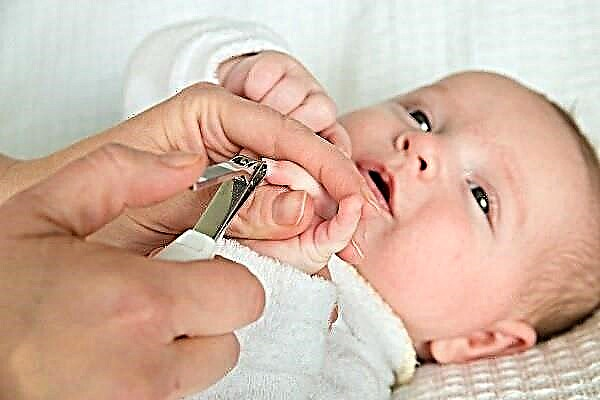Questions regarding breastfeeding are very relevant these days. Due to the fact that a nursing woman should limit sweets, she tries to find an alternative to them in other products. As you know, dried fruits are a good substitute for sweets, for example, some experts recommend eating dates while breastfeeding. But is it possible for a nursing mother to have dates? What useful properties do they have? Are there any contraindications to their use? How to choose the right product? These are the questions most often asked to the pediatrician by "new parents".
Is it good to eat dates while breastfeeding?
This product has a very high nutritional value. In addition, dates are an excellent substitute for store sweets, which are not recommended to be consumed during lactation.
Doctors recommend using this dried fruit during breastfeeding, as it has many beneficial properties due to its rich chemical composition.

What substances are rich in dates?
This dried fruit has a rich chemical composition. Its fat content is minimal, and carbohydrates - maximal. Fruits contain natural sugars, amino acids, vitamins of various groups. In addition, dates contain a lot of dietary fiber, selenium, fluorine, pectin, etc.
| Composition | The effect that is on the body |
| Pectin | Helps lower blood cholesterol, normalize metabolism. |
| Oxytocin | Stimulates lactation. |
| Serotonin and Melatonin - "hormones of happiness" | They improve mood, eliminate depression and stress, and improve general condition. |
| Protein | They improve the activity of the brain and help to strengthen the immune system. |
| Vitamin A | It helps to strengthen the eye muscles, bones, teeth, and also improves the structure of the skin and hair. |
| B vitamins | Promote cell renewal, normalize the functioning of the nervous and circulatory systems. |
| Vitamin C | Improves immunity, invigorates. |
| Vitamins PP (nicotinic acid) | It produces energy, normalizes blood circulation, stimulates the heart, prevents blood clots, arterial hypertension, diabetes mellitus. |
| Vitamin E | It is also called the "female vitamin", since its action is aimed at restoring and normalizing the work of female sex hormones, improving the condition of the skin, slowing down the aging of cells. |
| Calcium | Strengthens bones and teeth. |
| Potassium | Normalizes cardiac activity, regulates water balance, lowers blood pressure. |
| Fluorine | Promotes bone formation and tooth enamel strengthening. |
| Copper | Has a disinfecting and analgesic effect. |
| Phosphorus | Helps improve memory and brain function. |
| Selenium | Strengthens the immune system, normalizes cell growth. |
| Sodium | Improves muscle activity, normalizes blood pressure. |
| Magnesium | Promotes normal blood clotting and kidney function. |
| Iron | Increases hemoglobin levels. Removes excess fluid. |
This product is a good antioxidant, that is, it protects the body from external and internal toxic effects.
The benefits of dates for a lactating woman
The use of this product during breastfeeding contributes to:
- improving the condition of the uterus;
- strengthening immunity;
- increased lactation;
- the disappearance of postpartum depression, nervousness, fatigue;
- elimination of insomnia;
- improving water balance,
- an increase in the level of hemoglobin (due to the content of iron in dates);
- renewal of blood;
- launching the processes of rejuvenation and self-healing due to the active growth of new cells.
Dates enhance lactation due to oxytocin. It helps to relax the milk ducts, improve breast filling and increase the outflow of milk during the act of sucking.
Benefits for babies
A breastfed baby also benefits from this product. Dates have the following effect on the baby's body:
- improve sleep;
- calm him down;
- increase immunity;
- improve digestion (restore intestinal microflora);
- improve mood.
Dates are useful for both the mother and the child, however, it is recommended to introduce them into your diet only after consulting a pediatrician!
When is it better not to use dates for HS? Contraindications
Dates are high in carbohydrates, which provide energy for a nursing woman. But in the case when energy is not consumed, then they are deposited in the form of fat. Therefore, this factor is important to take into account when there is a tendency to overweight.
This product should not be abused if there is such a pathology as:
- stomach ulcer, duodenal ulcer;
- exacerbation of chronic gastritis;
- colitis;
- liver disease;
- diabetes;
- kidney disease;
- dysfunction of the pancreas;
- individual intolerance.
Dates should be enjoyable. If mom has an aversion to them or has contraindications, then this dried fruit should be discarded.
If the mother abuses dates, then the crumbs may experience intestinal colic, flatulence, allergic dermatitis and other side reactions.
In the event that the mother ate the treat and the child:
- the temperature has increased;
- itching occurred;
- spots appeared on the skin;
- difficulty breathing;
- shortness of breath;
- wheezing appeared;
- there was a sharp soreness in the abdomen;
- swollen mucous membrane, face, larynx;
- vomiting occurs, an urgent need to call an ambulance.
This delicacy contains a lot of sugar, which can adversely affect the tooth enamel, that is, contribute to its destruction. Therefore, it is very important to rinse your mouth with clean boiled water after eating dates.
Rules for the use of dates when breastfeeding
It is not recommended to try dates in the first month after childbirth, since during this period such reactions in newborns as intestinal colic and allergies often occur.
The introduction of this dried fruit into the diet of a nursing mother should be gradual (you need to start with one piece). The best time to do this is in the morning (at or after breakfast). After the "trial" introduction of dates into the mother's diet, it is necessary to wait for two days, observing the general condition of the crumbs and the appearance of allergic reactions. If no side reactions have arisen, then daily you can increase the dose by one piece, bringing it to the daily rate.
During the introduction of dates into the menu, other products should not be introduced into the diet, so that in the event of an allergic reaction, its true cause could be traced.
It is recommended that a nursing mother eat about five dates a day. The maximum number should not exceed ten. This is enough to replenish nutrients in the body. Excessive dosage may contribute to side effects.
It is advisable to eat dates whole, that is, you only need to remove the bone, and leave the peel. Since it contains a lot of coarse fibers and nutrients.
Before using these fruits, it is recommended to wash them in boiled water, and after eating them - rinse your mouth with water. This procedure should be performed to prevent tooth decay due to the high sugar content of dates.
Where is the best place to buy dates and what to look for?

When choosing dates, it is important to pay attention to the date of manufacture and expiration date. The fruit should be smooth to the touch and slightly shiny. Allowed if this treat has a slightly wrinkled appearance. But it is important that there are no sugar crystals and mold on it.
Since this delicacy is brought from eastern and southern countries, it is exported to other regions in processed form. And the way they are processed, transported and stored does not always comply with regulations. Namely, these factors are important when choosing dates, especially when breastfeeding, since everything that the mother eats is received by the baby.
Therefore, when choosing dates, you should pay attention to:
- per color. It should be uniform dark brown. A light peel indicates its immaturity;
- for the tightness of the package. When choosing this product in the package, it must be hermetically closed;
- on their integrity and appearance. Dates should be intact, without cracks, not hard, with a matte or slightly shiny surface. With prolonged or improper storage, mold, fermented odor, white bloom may appear.
The exfoliated cracked surface of dates is one of the main signs of artificial drying. The best fruit is naturally dried (through sunlight and constant turning).
If crystallized sugar is noticeable on the surface of the product or the fruits stick together, then it was treated with sugar syrup. In the event that its surface is oily, then the product was most likely treated with paraffin, glycerin, vegetable fats in order for it to become marketable.
Dates with a shelf life of more than a year are treated with preservatives. Preference should be given to products with bones, as they are less processed.
When choosing dates, it is important to pay attention to all of the above nuances. And then a high-quality product can be purchased both in the supermarket and on the market, and it will not cause any harm to the body of a nursing mother.
Date Recipes

Dates are widely used in the preparation of various dishes: desserts, jelly, compotes, salads, pasta, etc.
Here are some simple recipes for this product that are allowed during lactation.
- Compote. To prepare it, you need: 100 grams of the main ingredient, one and a half liters of water, four apples. Dates initially need to be filled with water and left to swell for fifteen to twenty minutes. Then you need to carefully remove the bone. Apples - wash, cut into slices, removing the core. Add all ingredients to a saucepan and cook for 15-20 minutes. It is better to drink the drink warm or cold.
- Smoothie. Ingredients: pumpkin - 200 grams (fresh or frozen), main ingredient - 45 grams, water - 250 ml, banana - 2 pieces. Method of preparation: boil pumpkin pulp, cut into cubes for a couple of minutes; dates - pitted and chopped; mix all the ingredients and beat with a blender until puree.
There are many other date recipes that can help diversify your diet during lactation.
Conclusion
Can dates be breastfed? The answer is yes, they are allowed for use during lactation, as they have many beneficial properties for both the mother and the child. However, one should not forget about the stages of their introduction into your diet and the likelihood of side reactions, as well as about the rules for choosing this product, and then you can only get benefits from it.
Take care of yourself and your children! Be healthy!
Bibliography
- Nursing mother's cookbook, Galina Dyadya, 2008.
- Maternal Guide Healthy Eating During Pregnancy and Breastfeeding, 2001
- "Breastfeeding and nutrition of children of the first year of life", I. M. Vorontsov, St. Petersburg, 2000
- "The practice of feeding children in the first year of life", St. Petersburg, V. V. Yuriev, 2008.



